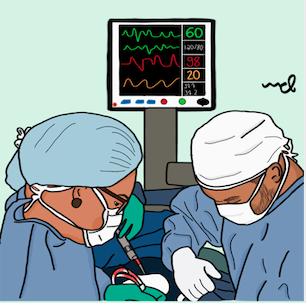Understanding the Incidence of Infections Following Brain Surgery
Introduction: Brain surgery is a complex and delicate medical procedure that is performed to address various neurological conditions, such as tumors, aneurysms, and epileptic seizures. While advancements in surgical techniques and infection control measures have significantly improved patient outcomes, the risk of infection following brain surgery remains a concern. Understanding the prevalence of infections in this context is crucial for both healthcare providers and patients to make informed decisions and implement preventive measures.
Incidence Rates: The incidence of infections after brain surgery varies depending on several factors, including the type of procedure, patient health, and the surgical environment. Generally, the overall rate of postoperative infections is relatively low, ranging from 1% to 5%. However, certain factors, such as the presence of pre-existing medical conditions, compromised immune systems, or the use of foreign materials like implants, may increase the risk. Surgical site infections (SSIs) are the most common type of infection associated with brain surgery, occurring in around 2-3% of cases.
Causes and Risk Factors: Several factors contribute to the risk of infection after brain surgery. The surgical site itself is a potential source of contamination, and despite rigorous sterilization protocols, bacteria may still enter the incision site. Additionally, the use of implants or shunts increases the risk of infection. Patient-related factors, such as diabetes, obesity, and immunosuppression, can also compromise the body’s ability to fight off infections. The duration of surgery and the overall health of the patient are critical factors that influence the likelihood of postoperative infections.
Preventive Measures: Healthcare providers take numerous precautions to minimize the risk of infections following brain surgery. Strict adherence to aseptic techniques, thorough preoperative skin preparation, and the administration of prophylactic antibiotics are standard practices. In some cases, surgeons may use antimicrobial sutures or other advanced materials designed to reduce the risk of infection. Postoperative care, including wound monitoring and prompt management of any signs of infection, is equally important in preventing complications.
Conclusion: While infections after brain surgery are relatively uncommon, they can have serious consequences. Understanding the factors that contribute to the risk of infection, implementing rigorous preventive measures, and closely monitoring patients postoperatively are essential components of ensuring optimal outcomes. As medical technologies continue to advance, ongoing research and innovations in infection control will further contribute to reducing the incidence of postoperative infections and improving the overall safety of brain surgery.


